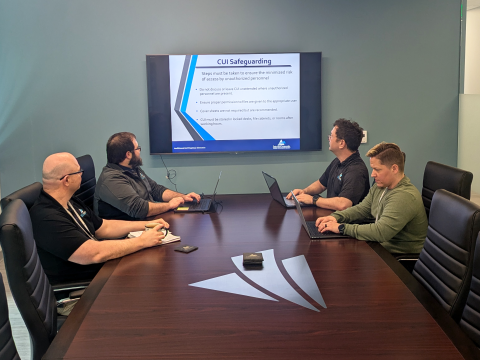Post-Bid Activities as Vital as Preparation
Small businesses that lose a federal bid should take part in every applicable activity after the contract is awarded, including protests, if applicable. In many cases, these would set up the firm for a better chance to win their next bid. And, in some instances, a successful protest could overturn a contract award to a company’s favor.
These points were outlined by Josh Duvall, founder and managing partner of Matross Edwards LLC. Speaking to the AFCEA Small Business Committee, Duvall outlined several major points for firms that did not succeed in their bid proposals.
First and foremost is the formal debrief. “In the commercial world, you are not really having an opportunity in most cases to figure out why you didn’t win a big bid,” he told the audience. “But luckily, for federal contracting … we have a unique opportunity to get information and to build relationships.” A relationship may lead to a government agency offering the company other opportunities, Duvall noted.
He noted that the debriefings he is referring to come under FAR Part 15. Contractors are entitled to both pre-award and post-award debriefings, provided that the request is timely. That is a critical issue, he said, adding that the request should be filed with the government within three days after the award. Companies should take the first date offered by the government. The same holds for pre-award debriefs, as companies should not delay on their own accord unless the government chooses to do so.
“Always request a debriefing, win or lose,” he stated. Duvall added that the debrief is an opportunity to nitpick at an agency, even if a firm has no intention to protest.
But if a firm is considering protesting an award, it should carefully weigh several factors before committing to a protest, Duvall offered. Firms can protest through the Government Accountability Office (GAO), the U.S. Court of Federal Claims (COFC) and the procuring agency, depending on the bid. The GAO can only make recommendations to federal agencies, which often follow them.
Firms going to the GAO can challenge a solicitation or award, and many build this into their acquisition timeline, he said. GAO protests are filed through its website, and the agency has 100 days to decide.
Successful pre-award protests often focus on ambiguous language, efforts that improperly restrict competition, unreasonable evaluation methods, and language that violates laws or regulations. Post-award protests often succeed because an agency’s evaluation was unreasonable, especially because of technical past performance or cost/price issues, and a flawed best value tradeoff decision.
Duvall warned that the reasons for a protest may be more nuanced than a company simply losing an award. Only an interested party may protest, and that party must show how its direct economic interest would be affected by the failure to award a contract to it. Standing is important; “If you’re ninth in line, you have a long way to go to show that you would have been prejudiced by the errors of the awardee,” he allowed.
“Take a step back and try to separate yourself from the procurement at hand, because you’re not going to be looking at “I don’t like the fact that I didn’t win.’ What you really want to focus on are these procedural flaws,” he stated.




Comments